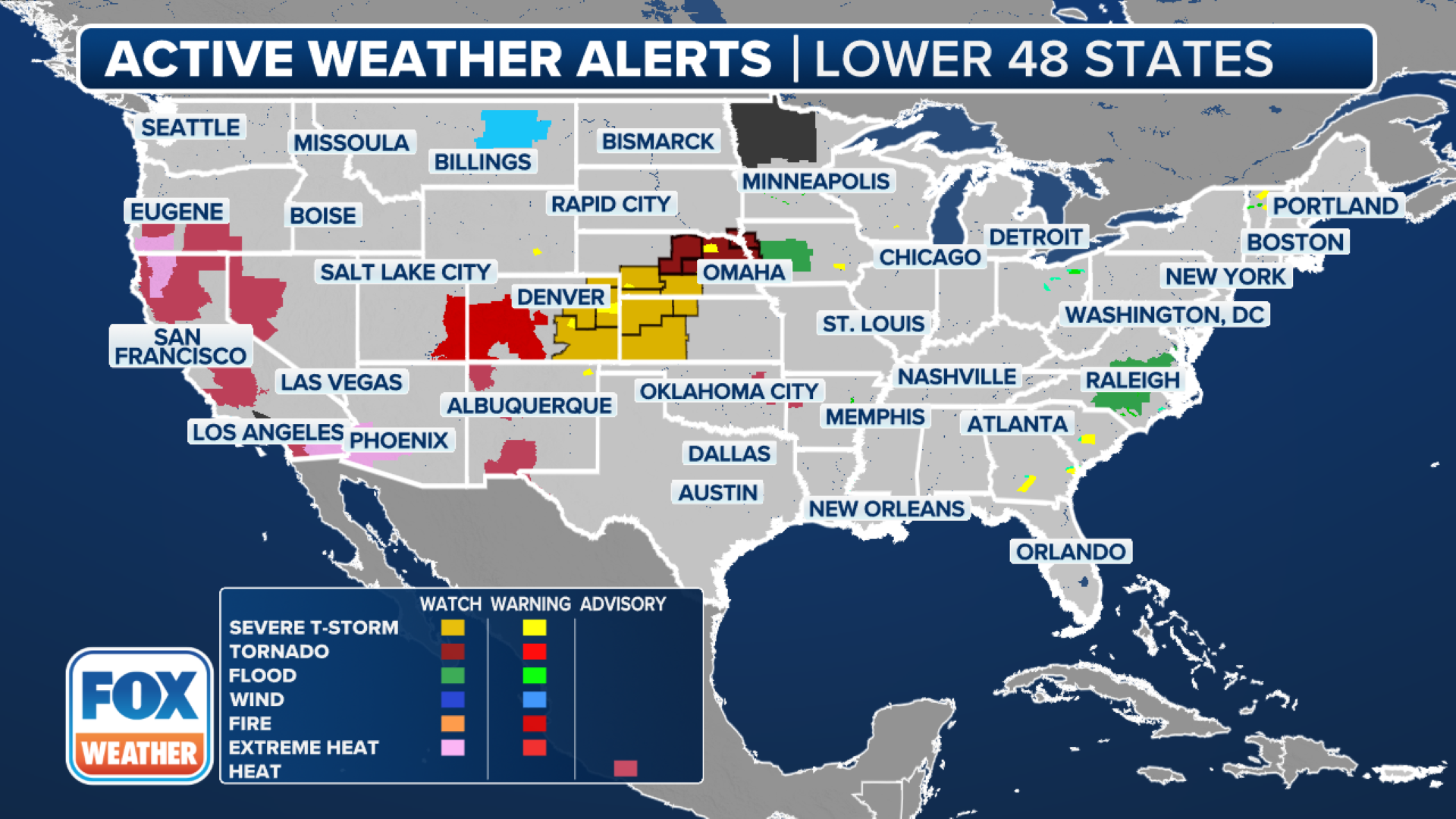Active Vs. Expired Weather Alerts: Your Guide To Severe Storms In The Carolinas

Table of Contents
Understanding Active Weather Alerts in the Carolinas
Active weather alerts indicate that severe weather is happening now or is imminent in your area. Knowing how to interpret these alerts and react swiftly is vital.
Types of Active Alerts:
The National Weather Service (NWS) issues various alerts for different severe weather threats. In the Carolinas, you’ll commonly encounter:
- Tornado Warning: A tornado has been sighted or indicated by weather radar. Take immediate action!
- Severe Thunderstorm Warning: Severe thunderstorms are occurring and producing damaging winds (58 mph or greater), large hail (1 inch in diameter or greater), or tornadoes. Seek shelter immediately.
- Flash Flood Warning: A life-threatening flood is happening or is imminent. Never drive through flooded areas.
- Hurricane Warning: Hurricane conditions are expected within 24 hours. Evacuate if instructed by authorities.
How to Respond to Active Alerts:
Your response depends on the specific alert issued, but some general guidelines include:
- Tornado Warning: Go immediately to a basement or interior room on the lowest floor of a sturdy building. Avoid windows.
- Severe Thunderstorm Warning: Move indoors to a sturdy building. Avoid windows and stay away from metal objects.
- Flash Flood Warning: Move to higher ground immediately. Never attempt to drive through flooded areas – even a few inches of water can sweep away a vehicle.
- Hurricane Warning: Follow evacuation orders from local officials. Secure your home and property as instructed.
Reliable Sources for Active Alerts:
Only use official sources to receive weather information. Avoid unverified social media posts or unreliable websites. Trusted sources include:
- National Weather Service (NWS) website:
- NOAA Weather Radio: A dedicated weather radio is a great backup option.
- Reputable weather apps: The NWS app, AccuWeather, and The Weather Channel are popular and reliable options in the Carolinas.
Recognizing and Interpreting Expired Weather Alerts
While an expired alert means the immediate threat has passed, it doesn't signal the end of all danger.
What "Expired" Means:
An expired weather alert means the specific weather event the alert described has either ended or is no longer considered an immediate threat. The alert may have been canceled (the threat is gone) or simply expired after its designated time frame.
Why Expired Alerts Still Matter:
Even after an alert expires, hazards might persist:
- Flooding: Rivers and streams may continue to rise for hours after heavy rainfall ends.
- Downed Power Lines: Strong winds can leave power lines down, posing an electrocution risk.
- Debris: Fallen trees and other debris may remain dangerous after a storm has passed.
Remain vigilant and cautious even after an alert expires.
Avoiding Misinterpretation of Expired Alerts:
Always check the date and time stamp on any weather alert. Expired alerts should be easily distinguishable from active ones on most weather apps and websites. Don't rely on outdated information.
Utilizing Technology for Severe Storm Awareness in the Carolinas
Technology plays a crucial role in staying informed about severe weather.
Weather Apps and Notifications:
Download a reliable weather app and customize your settings to receive alerts for your specific location in the Carolinas.
Wireless Emergency Alerts (WEA):
Enable Wireless Emergency Alerts (WEA) on your mobile device. WEA will send you urgent alerts directly to your phone, even if you don't have a weather app open.
Utilizing Social Media Responsibly:
While social media can provide updates during severe weather, always verify information from official sources like the NWS before acting on it. Social media posts may contain misinformation.
Conclusion:
Understanding the difference between active and expired weather alerts is paramount for safety during severe storms in the Carolinas. Active alerts demand immediate action, while expired alerts warn of lingering hazards. By using official sources, downloading reliable weather apps, and developing a severe weather preparedness plan, you can significantly reduce your risk. Download a reliable weather app today, sign up for weather alerts, and create your severe weather safety plan to stay informed and safe during severe storms in the Carolinas.

Featured Posts
-
 Detroit Tigers Home Series Loss Offensive Woes Against Rangers
May 31, 2025
Detroit Tigers Home Series Loss Offensive Woes Against Rangers
May 31, 2025 -
 Nyc Mayors Security Detail Involved In Crypto Kidnapping
May 31, 2025
Nyc Mayors Security Detail Involved In Crypto Kidnapping
May 31, 2025 -
 Supreme Court Ruling Prompts Bannatynes Stance On Men In Female Changing Areas
May 31, 2025
Supreme Court Ruling Prompts Bannatynes Stance On Men In Female Changing Areas
May 31, 2025 -
 Kham Pha Gia The Va Su Nghiep Pickleball Cua Sophia Huynh Tran
May 31, 2025
Kham Pha Gia The Va Su Nghiep Pickleball Cua Sophia Huynh Tran
May 31, 2025 -
 Fox Raceway Pro Motocross 2025 Season Opener Results
May 31, 2025
Fox Raceway Pro Motocross 2025 Season Opener Results
May 31, 2025
